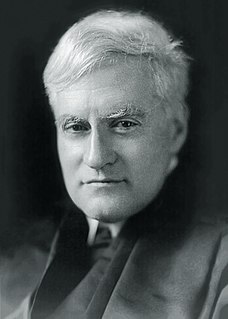A Quote by Laozi
When wisdom and knowledge appear, great pretense arises.
Related Quotes
Wisdom and knowledge can best be understood together. Knowledge is learning, the power of the mind to understand and describe the universe. Wisdom is knowing how to apply knowledge and how not to apply it. Knowledge is knowing what to say; wisdom is knowing whether or not to say it. Knowledge gives answers; wisdom asks questions. Knowledge can be taught, wisdom grows from experience.
A philosopher is a lover of wisdom, not of knowledge, which for all its great uses ultimately suffers from the crippling effect of ephemerality. All knowledge is transient, linked to the world around it and subject to change as the world changes, whereas wisdom, true wisdom is eternal, immutable. To be philosophical one must love wisdom for its own sake, accept its permanent validity and yet its perpetual irrelevance. It is the fate of the wise to understand the process of history and yet never to shape it.
There is oftentimes a great deal of knowledge where there is but little wisdom to improve that knowledge. It is not the most knowing Christian but the most wise Christian that sees, avoids, and escapes Satan's snares. Knowledge without wisdom is like mettle in a blind horse, which is often an occasion of the rider's fall.
WISDOM IS dependent upon knowledge. Where there is complete ignorance there can be no wisdom, no knowledge of the right thing to do. Man’s knowledge is comparatively limited and so his wisdom must be small, unless he can connect his mind with a knowledge greater than his own and draw from it, by inspiration, the wisdom that his own limitations deny him. Only God knows all truth; therefore only God can have Real wisdom or know the right thing to do at all times, and man can receive wisdom from God. Wisdom is obtained by reading the mind of God.
The Buddhas, the World-Honored Ones, for one great cause alone appear in the world. The Buddhas, the World-Honored Ones, appear in the world because they wish to cause the beings to hear of the Buddha's knowledge and insight and thus enable them to gain purity. They appear in the world because they wish to demonstrate the Buddha's knowledge and insight to the beings. They appear in the world because they wish to cause the beings to understand. They appear in the world because they wish to cause the beings to enter into the path of the Buddha's knowledge and insight.
Everyone recognizes a distinction between knowledge and wisdom. . . Wisdom is a kind of knowledge. It is knowledge of the nature, career, and consequences of human values. Since these cannot be separated from the human organism and the social scene, the moral ways of man cannot be understood without knowledge of the ways of things and institutions.









































